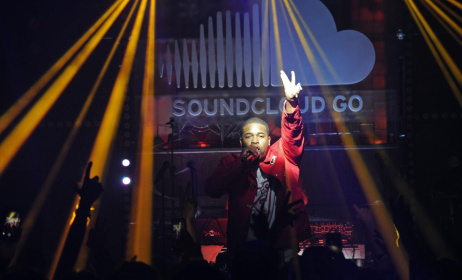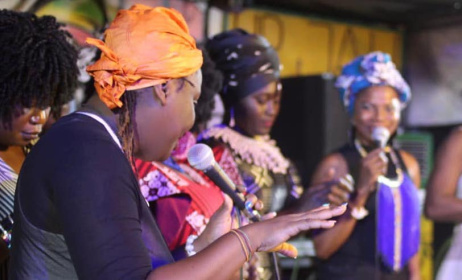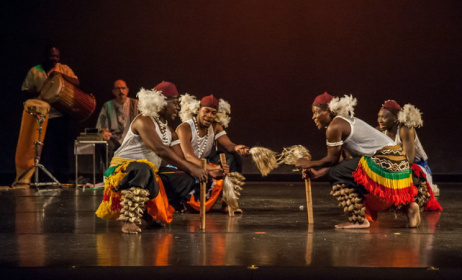Ghanaian musicians protest for better living conditions
For three days, young Ghanaians including a number of musicians took to the country’s capital Accra to express their frustration with the challenging living conditions in the West African country.
 Stonebwoy joined the #OccupyJulorbiHouse protest at the weekend.
Stonebwoy joined the #OccupyJulorbiHouse protest at the weekend.
The demonstration, which climaxed at the weekend, was led by pressure group Democracy Hub and christened #OccupyJulorbiHouse. The protesters, including musicians M.anifest, Stonebwoy, Kelvyn Boy, Efya, D-Black and Pappy Kojo, called for basic necessities and the ability for Ghanaians to support their families. The protesters wanted to present their grievances at the presidential palace, Golden Jubilee House, but the police prevented them from doing so.
Ghana is grappling with a challenging economic outlook. According to a June report by the World Bank, economic growth in the country will decelerate significantly at 1.5% in 2023 and a subdued 2.8% in 2024.
Some 49 demonstrators were arrested on the first day of the protest on charges of unlawful assembly and violation of the Public Order Act. Despite this, protesters returned for two more days of action, with the demonstration climaxing on a rainy Saturday night.
“We have families,” rapper D-Black told a local website. “We have businesses we run. We are human beings and we are citizens. We are Ghanaians and we feel the pain of everybody else. The government in power currently has disappointed us and they’re not speaking to us. Communication is not the best. We don’t know what’s going on.”
Dancehall singer Stonebwoy, who led a candlelight procession, highlighted Ghana’s harsh living conditions and inadequate infrastructure. “Ghanaians are one people … If my brothers and sisters have come together and realised something is going on with which we are concerned, we all have to step in … I am not standing here in the name of any political party but I stand in solidarity with the Ghanaians because I am a Ghanaian,” he said.
The convener of the protest, Oliver Barker-Vormawor, was resolute in the face of government silence, promising that the protest action would lead to prosperity and liberty despite challenges posed by powerful institutions within the country.
“We have shown them that when every institution of this country is captured and co-opted and has lost its voice, the street would speak loud and louder than any point in time,” Barker-Vormawor said.
On Saturday, the police released a statement about a meeting they held with Democracy Hub leaders, emphasising a willingness to facilitate peaceful demonstrations but expressing concerns about the protest’s intended location at Jubilee House, a designated security zone. The police also noted that there was no evidence of reported assaults by demonstrators and asked for “anyone with evidence to the contrary” to “provide it for investigation.”
“We would like to assure the public that the police service is dedicated to fostering a democratic environment where citizens’ rights are upheld while maintaining the security and stability of the nation,” the police said.
Ghanaian musicians have a long tradition of using their influence to speak out against socio-political issues in the country. In May 2015, Sarkodie, Efya and Barima Sidney were among a number of well-known musicians who led the #DumsorMustStop campaign aimed to address Ghana’s energy crisis.



























Commentaires
s'identifier or register to post comments